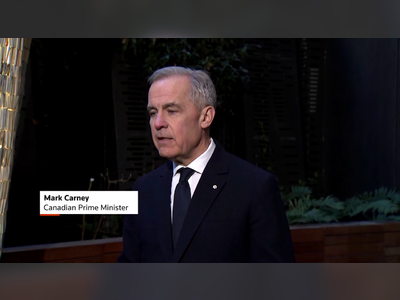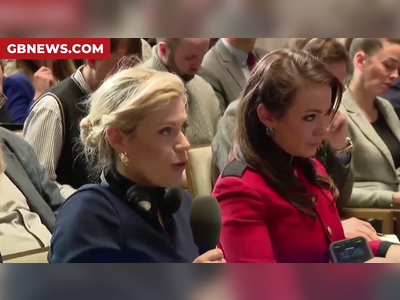Biden Halts $14.9 Billion US Steel Sale to Nippon: A Move to Safeguard National Security
Outgoing President Joe Biden Blocks Japanese Acquisition of US Steel, Citing Risks to American Industry and Security
In a bold and decisive move reflective of his administration's commitment to national security, President Joe Biden has intervened to prevent the $14.9 billion acquisition of US Steel by Japan's Nippon Steel.
The block comes just weeks before the transition of power to President-elect Donald Trump, who has also voiced opposition to the foreign takeover.
The proposed acquisition, first announced in December 2023, was met with resistance amid bipartisan concerns about potential ramifications on the United States' critical supply chains and industrial sovereignty.
As one of America's largest steel producers, US Steel plays an integral role in domestic manufacturing capabilities, casting Biden's decision as a strategic safeguarding of not only economic interests but also national defense mechanisms.
"This acquisition would place a crucial component of our industrial fabric under foreign control, posing an unacceptable risk to our national security," Biden announced in a formal statement, marking a stark stance in protecting American economic fortification.
The halted sale included anticipated Nippon investments amounting to $2.7 billion targeted at enhancing US Steel operations across Pennsylvania and Indiana.
Pennsylvania, notably a pivotal swing state in the 2024 presidential elections where Trump triumphed over Democratic contender Kamala Harris, underscores the strategic economic and political nuances entwined in the steel industry’s future.
Corporate executives from both US Steel and Nippon had fervently petitioned Biden to permit the acquisition, portraying it as a paramount means to secure the company's competitive longevity.
Facing setbacks, they have asserted their intent to pursue legal action if necessary.
However, opposition was not limited to the executive branch.
The United Steelworkers (USW) labor union firmly contested the takeover, labeling Nippon's promises as insufficient and potentially detrimental.
"What we see here is a glaring example of corporate greed.
This acquisition jeopardizes American jobs and compromises our domestic steel industry's long-term viability," stated USW leader David McCall, emphasizing the crucial intersection of labor, national integrity, and economic strategy.
The decision serves as a timely reminder of the complexities at play in the globalized economy, where national priorities often clash with international business ambitions.
As the Biden administration concludes, it leaves a legacy of staunch protectionism resonating through an era of heightened geopolitical and economic contestation.
The block comes just weeks before the transition of power to President-elect Donald Trump, who has also voiced opposition to the foreign takeover.
The proposed acquisition, first announced in December 2023, was met with resistance amid bipartisan concerns about potential ramifications on the United States' critical supply chains and industrial sovereignty.
As one of America's largest steel producers, US Steel plays an integral role in domestic manufacturing capabilities, casting Biden's decision as a strategic safeguarding of not only economic interests but also national defense mechanisms.
"This acquisition would place a crucial component of our industrial fabric under foreign control, posing an unacceptable risk to our national security," Biden announced in a formal statement, marking a stark stance in protecting American economic fortification.
The halted sale included anticipated Nippon investments amounting to $2.7 billion targeted at enhancing US Steel operations across Pennsylvania and Indiana.
Pennsylvania, notably a pivotal swing state in the 2024 presidential elections where Trump triumphed over Democratic contender Kamala Harris, underscores the strategic economic and political nuances entwined in the steel industry’s future.
Corporate executives from both US Steel and Nippon had fervently petitioned Biden to permit the acquisition, portraying it as a paramount means to secure the company's competitive longevity.
Facing setbacks, they have asserted their intent to pursue legal action if necessary.
However, opposition was not limited to the executive branch.
The United Steelworkers (USW) labor union firmly contested the takeover, labeling Nippon's promises as insufficient and potentially detrimental.
"What we see here is a glaring example of corporate greed.
This acquisition jeopardizes American jobs and compromises our domestic steel industry's long-term viability," stated USW leader David McCall, emphasizing the crucial intersection of labor, national integrity, and economic strategy.
The decision serves as a timely reminder of the complexities at play in the globalized economy, where national priorities often clash with international business ambitions.
As the Biden administration concludes, it leaves a legacy of staunch protectionism resonating through an era of heightened geopolitical and economic contestation.
Translation:
Translated by AI
AI Disclaimer: An advanced artificial intelligence (AI) system generated the content of this page on its own. This innovative technology conducts extensive research from a variety of reliable sources, performs rigorous fact-checking and verification, cleans up and balances biased or manipulated content, and presents a minimal factual summary that is just enough yet essential for you to function as an informed and educated citizen. Please keep in mind, however, that this system is an evolving technology, and as a result, the article may contain accidental inaccuracies or errors. We urge you to help us improve our site by reporting any inaccuracies you find using the "Contact Us" link at the bottom of this page. Your helpful feedback helps us improve our system and deliver more precise content. When you find an article of interest here, please look for the full and extensive coverage of this topic in traditional news sources, as they are written by professional journalists that we try to support, not replace. We appreciate your understanding and assistance.











